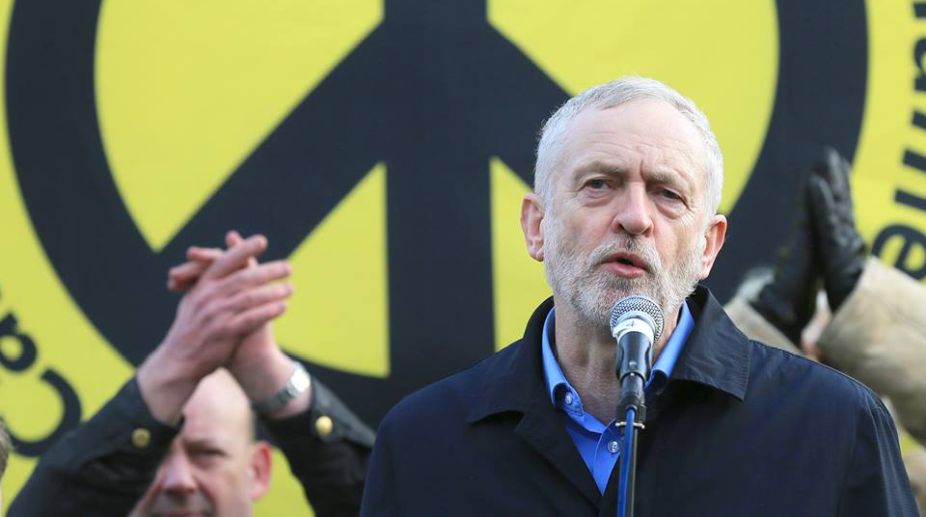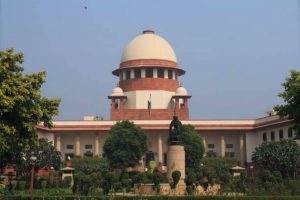Politics is not merely authoritative allocation of values and resources but also a conscious selection of policies through which resources would be allocated.
The recently concluded British elections were testimony to this. Policies, after a long time, trumped unruly and recriminatory politics which has become a hallmark of contemporary times, especially when it is the Left and the Right locking horns.
Since the rise of the New Labour under Tony Blair, the Labour party had no policy alternative to the Conservatives. Instead they had surprises for the British people by going to war in Iraq alongside George Bush Jr, to search for weapons of mass destruction that were never found.
This policy proved counterproductive as jihadi elements succeeded in radicalising and baiting British Muslim youth. The recent involvement of Salman Abedi, son of an ex-Libyan militiaman in a suicide attack in Manchester which according to his sister Jomana Abedi was “driven by a desire to seek revenge for the military attacks in Middle-East”, proves that it was policy failure, not a moral failure of the British as alleged by many Conservative commentators.
Despite the attempt by the Tories to take the debate towards national security and Muslim immigrants after the attacks, Labour under its progressive leader had a suitable answer, British foreign policy. Jeremy Corbyn, who had been on the far-left of the Labour party and has a record of voting against resolutions which initiated and supported American war efforts in the Middle-east, did not give in to the insinuations of being ‘unpatriotic and soft on terrorism’. Such a track record absolved Corbyn of the sins committed by his own party.
He went on publicly to speak against the Saudi funding of terrorist organisations and dared the Tories to stop selling arms to them. Instead of deriving political capital out of the horrific event, he presented before the people constructive alternatives such as filling police positions which were lying empty since Theresa May presided over 20,000 police cuts as home secretary. After the sitting Prime Minister called for a snap election catching political opponents by surprise, pollsters predicted a thumping majority for the Tories.
The main motive behind this decision of May was to strengthen her position in the party, have a smooth tenure as Prime Minister without a hostile House of Commons and reduce the opposition, especially the Labour party, to insignificance.
Following Corbyn’s spirited campaign which promised free university education in England, institution of NHS, a normative foreign policy and high corporate taxation, the people especially the old and the youth, started drifting towards him.
While many in Britain doubted the ability of the Labour party to deliver on such high promises, the Tory manifesto remained a saga of confusion and oscillation. Erosion in the Tory vote bank started with May’s social care policies wherein people requiring social care in their house would have to pay for it until the value of their house reached the mark of £100,000. Worst of all, the manifesto also promised that the house would be sold only after the person’s death in order to recoup costs, jeopardising the inheritance rights of the children of the deceased.
The Labour party termed it as a manifesto of ‘chaos, confusion and indecision’ whereas the Liberal Democrats called it a ‘manifesto meltdown’. Later on, her U-turn on this crucial issue famously called ‘dementia tax’, wherein she promised an ‘absolute limit’ to the payable amount although without setting the limit before election, proved to be disastrous.
She also desisted, even after regular invitations, to engage in a head to head debate with Corbyn on policy matters. Her reticence convinced people that her promise of a ‘hardBrexit’ was hollow and bootless.
The election campaign which was focused on the singular agenda of Brexit, did not involve much debate, ostensibly because the two main parties respected the people’s verdict.
The only exception lay with the Liberal Democrats as they promised a second referendum on Brexit. In such a situation, Tory poll strategists mooted the idea of ‘stability and strong government’ as the twin pillars of May’s bid to become Prime Minister.
But the crucial question of how the stability and strong government would come about remained unanswered. Unlike elections in Parliamentary systems where the entire party comes into action, sometimes to the dismay of the leader, British elections resembled a Presidential election.
Tory leaders like Boris Johnson, who have a reputation of being vocal and opinionated, were missing from the limelight. It appeared as if the Conservative strategists had planned to expose the friction within the Labour camp which existed ever since Corbyn was elected to lead the party.
This strategy also failed to deliver as the entire party stood behind him, with the exception of Blairite dregs who looked down upon socialism since the 1997 victory that saw the party’s slide to the centre and sometimes centre-right. On polling day the voter turnout was 69 per cent, highest since 1997 when it was 71.4 per cent with Labour gaining 10 percentage points to reach 40 per cent of votes polled and the Conservatives receiving 42 per cent.
The far-right UKIP was the biggest loser as it saw its vote share dip from 10.8 per to a mere 1.9 per cent, plunging it into an existential crisis. Labour retained its stronghold in Wales while the Conservatives won a surprising 13 seats in Scotland, their highest since 1983.
The Scottish National Party lost 21 seats across Scotland, a phenomenon which will put the demand for a Scottish referendum on the backburner. As the Conservatives failed to get a majority, it was a victory for Jeremy Corbyn. From being written off by pollsters to winning 260 plus seats and constituting a strong opposition in the House of Commons, the Labour party has found new life thanks to the rise of the socialist faction within the party. Theresa May not only lost the majority but also the credibility to affect a hard-Brexit as promised by her.
The Conservatives now enter a phase of political uncertainty as they propose to enter into an alliance with Democratic Unionist Party (DUP) of Northern Ireland. DUP is a reactionary party whose leader Arlene Foster was involved in a scandal over a green energy initiative.
She has called global warming a bluff, is against gay marriage and LGBT rights and is anti-choice and proforced pregnancy. The alliance with DUP would also jeopardise attempts to get the 1967 Abortion Act to apply in Northern Ireland.
A recently concluded analysis of marginal seats revealed that if Labour had won seven more seats, a progressive coalition led by Corbyn was a possibility, excluding the DUP. However, this did not happen.
For socialists across the world, the Corbyn phenomenon would serve as a template of poll strategy and policies whereas for the Conservatives and the ‘silent majority’ he would go down as a populist who won despite losing.
The writer is a doctoral candidate in international relations at the South Asian University.











